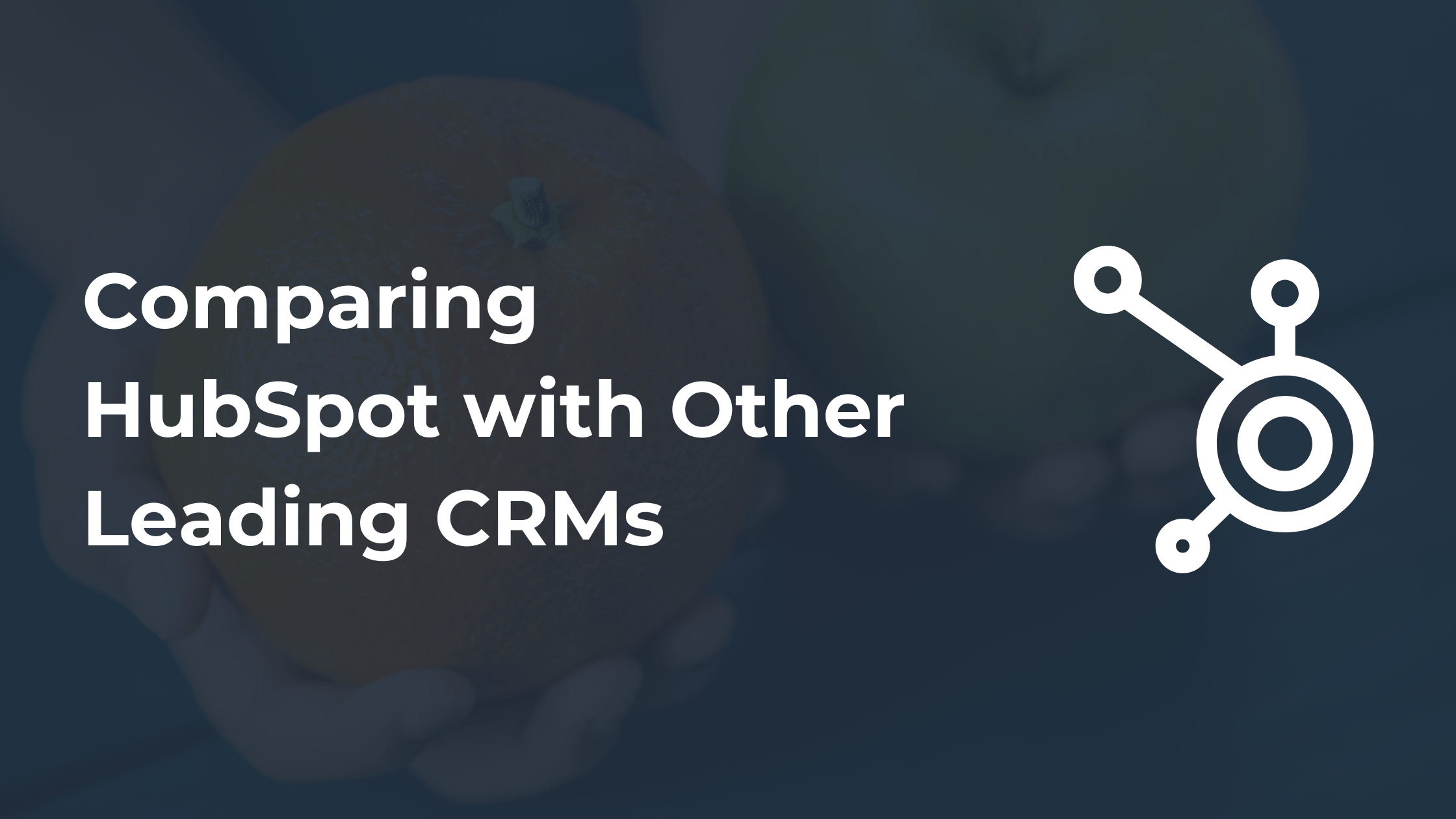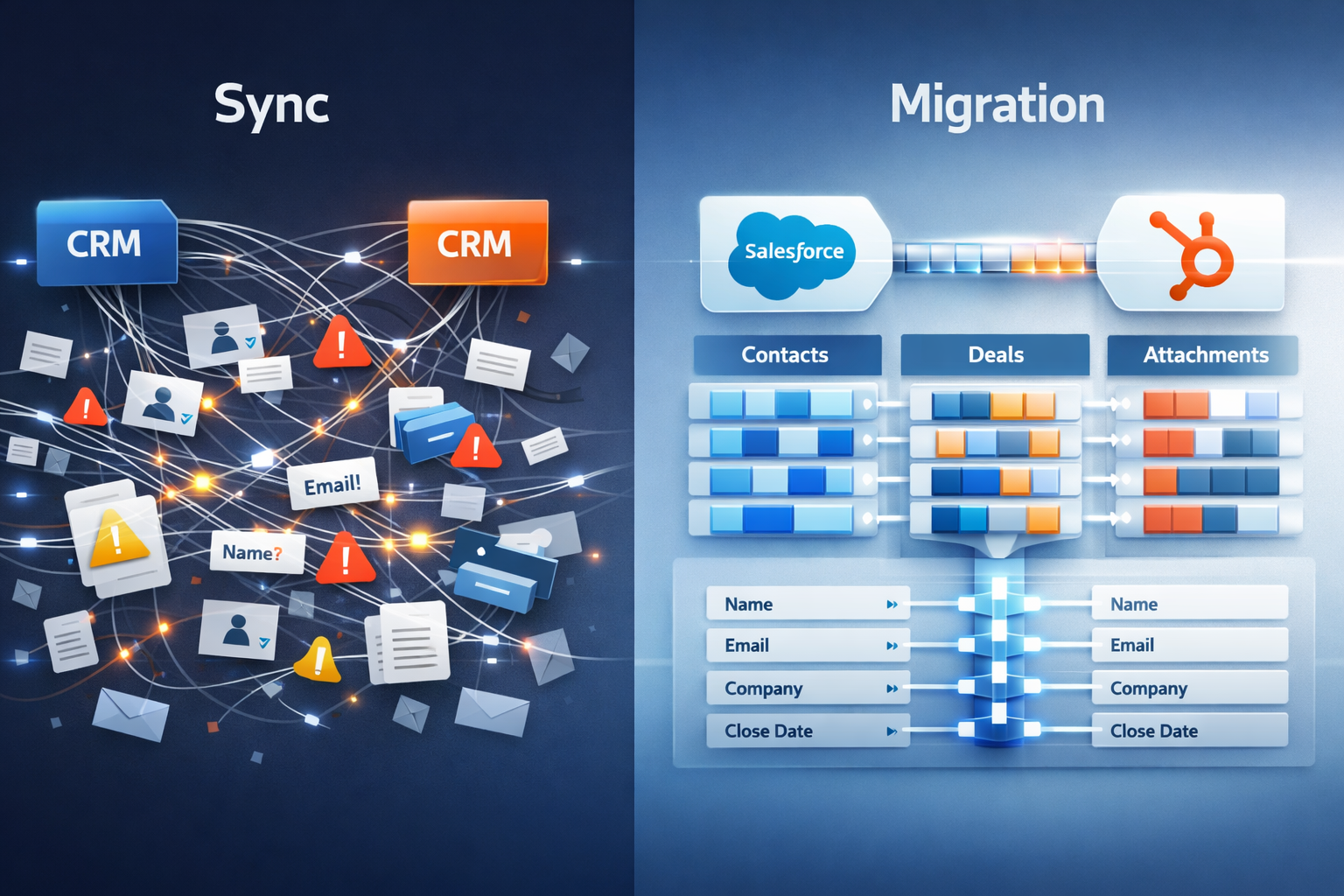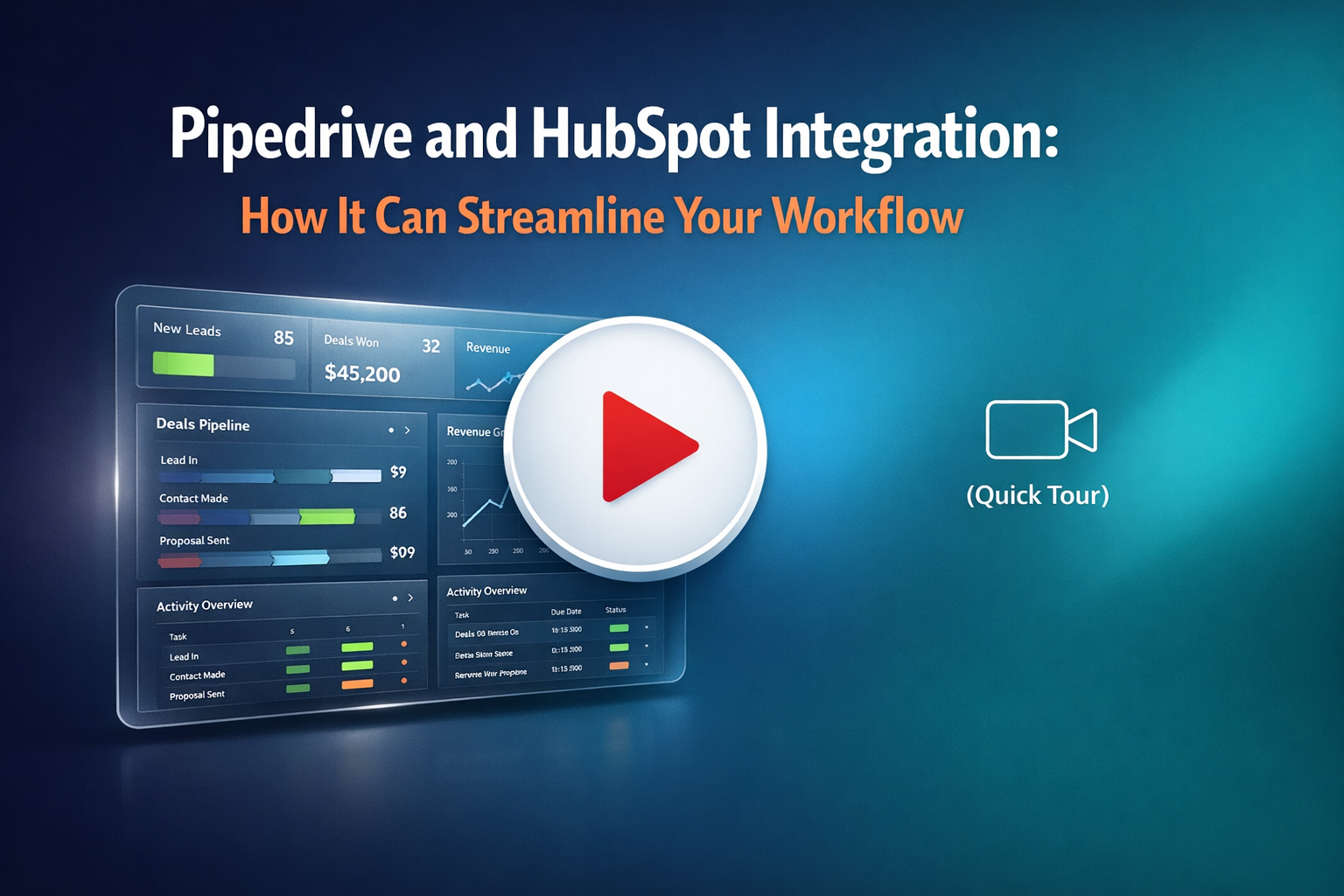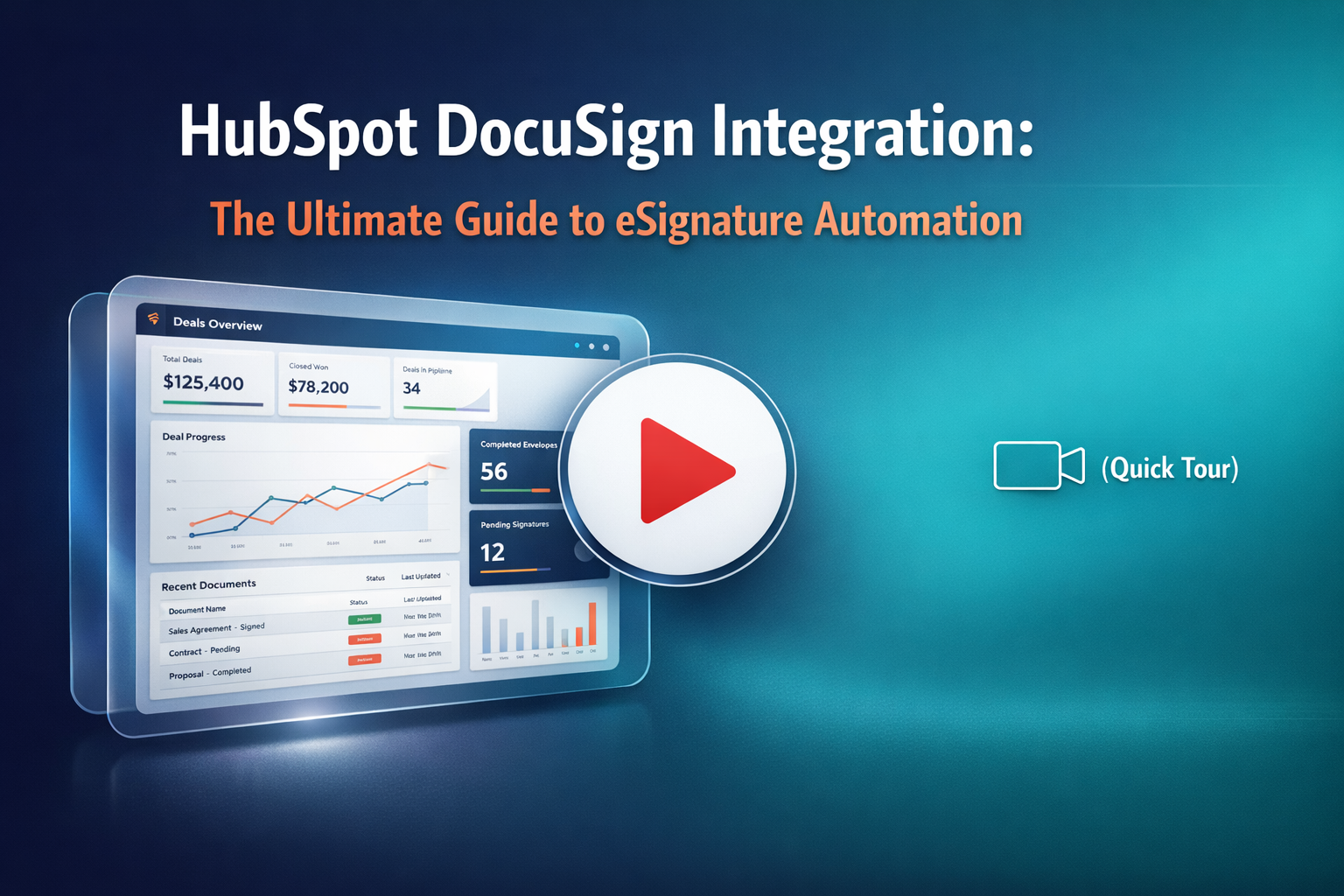Welcome to the world of CRM, where data reigns supreme and customer relationships are the currency. In this bustling marketplace, HubSpot has emerged as a leading contender. But how does it stack up against other CRM giants? That's the million-dollar question we're here to answer.
In this comprehensive HubSpot CRM comparison, we'll pit HubSpot against other top CRM platforms. We'll delve into features, integrations, pricing, and more.
Whether you're a seasoned CRM manager or a business owner exploring CRM for the first time, this guide is for you.
So, buckle up and get ready for a deep dive into the world of CRM. Your journey to finding the perfect CRM solution starts here.
Understanding CRM and Its Impact on Business
Customer Relationship Management (CRM) is more than just a fancy acronym. It's a game-changer for businesses of all sizes.
At its core, CRM is about managing and optimizing your interactions with customers. It's about turning data into meaningful relationships and, ultimately, revenue.
From tracking sales activities to automating marketing campaigns, a good CRM system can revolutionize the way you do business. It's not just about making life easier for your sales team. It's about providing a better experience for your customers, too.
HubSpot CRM at a Glance
Let's dive into the world of HubSpot CRM. It's a big player in the CRM market, and for good reason.
HubSpot CRM is designed to be user-friendly and scalable, catering to businesses of all sizes. It's a comprehensive solution that combines sales, marketing, and service tools in one platform.
Here are some of the key features of HubSpot CRM:
- Contact and deal management
- Email tracking and automation
- Task and activity tracking
- Reporting and analytics
- Live chat and conversational bots
Key Features of HubSpot CRM
HubSpot CRM is packed with features designed to streamline your sales and marketing processes.
At the heart of HubSpot CRM is its contact management system. It allows you to track every interaction with your customers, giving you a complete view of your customer relationships.
Deal tracking is another standout feature. It lets you manage your sales pipeline with ease, from initial contact to closing the deal.
HubSpot CRM also shines in the area of marketing automation. It helps you automate busywork. This gives your team more time to build relationships and make sales.
HubSpot Integrations
One of the strengths of HubSpot CRM is its ability to integrate with a wide range of apps and services.
Whether you're using Slack for team communication, WordPress for your website, or Zapier to connect your apps, HubSpot CRM can seamlessly integrate with your existing tools.
This means you can keep using the tools you love, while benefiting from the power of HubSpot CRM. It's a win-win situation.
The Benefits of Using HubSpot CRM
So, why should you consider using HubSpot CRM?
Firstly, it offers a free CRM solution that's perfect for small businesses or those just starting out. This allows you to test the waters without any financial commitment.
Secondly, HubSpot CRM is built around the inbound marketing methodology. This means it's designed to attract, engage, and delight customers, leading to more meaningful and profitable relationships.
Finally, HubSpot CRM is known for its excellent customer support and extensive training resources. This means you're never alone on your CRM journey.
HubSpot vs Salesforce: The Titans of CRM
When it comes to CRM, two names often come to mind: HubSpot and Salesforce. Both are powerhouses in the CRM world, but they offer different experiences.
Salesforce is known for its extensive ecosystem and high degree of customization. It's a robust solution that can scale with your business, but it can also be complex and overwhelming for some users.
On the other hand, HubSpot is praised for its user-friendly interface and comprehensive feature set. It's designed to be easy to use, yet powerful enough to handle your business needs.
Here's a quick comparison of the two:
- Scalability: Both HubSpot and Salesforce offer scalable solutions, but Salesforce is often seen as more suitable for large enterprises.
- Customization: Salesforce shines in this area, offering a high degree of customization. HubSpot, while less customizable, is easier to use.
- Ecosystem: Salesforce has a larger ecosystem with more third-party integrations. However, HubSpot's ecosystem is growing rapidly and offers many popular integrations.
Pricing Models: HubSpot vs Salesforce
When it comes to pricing, HubSpot and Salesforce take different approaches.
Salesforce uses a tiered pricing model, with plans ranging from $25 to $300 per user per month. It's a powerful solution, but it can get expensive, especially for larger teams.
HubSpot, on the other hand, offers a free CRM with optional paid upgrades. This makes it a more affordable option for small businesses or those just starting out.
However, it's important to consider the total cost of ownership. This includes not just the subscription fees, but also the cost of implementation, training, and support.
Customization and Scalability
Salesforce is known for its high degree of customization. It offers a wide range of features and tools that can be tailored to your business needs. This makes it a great choice for large enterprises with complex requirements.
However, this customization comes with a learning curve. It can take time and resources to set up and manage a Salesforce CRM.
HubSpot, on the other hand, is designed to be user-friendly and easy to set up. While it may not offer the same level of customization as Salesforce, it's a more accessible option for small to medium-sized businesses.
User Experience and Support
User experience is a key factor to consider when choosing a CRM. A system that's difficult to use can lead to low adoption rates and inefficiencies.
HubSpot is known for its intuitive, user-friendly interface. It's designed to be easy to navigate, even for non-technical users.
Salesforce, while powerful, can be complex and overwhelming for some users. However, it offers extensive training resources to help users get up to speed.
In terms of support, both HubSpot and Salesforce offer comprehensive support options. However, HubSpot is often praised for its responsive and helpful customer service.
HubSpot vs Zoho: Simplicity Meets Customization
Another CRM contender worth considering is Zoho. Known for its extensive suite of business applications, Zoho CRM is a feature-rich platform that offers a high degree of customization.
Like HubSpot, Zoho CRM is designed to be user-friendly and easy to navigate. However, it also offers a wide range of advanced features and customization options, making it a flexible solution for businesses of all sizes.
Here's a quick comparison of the two:
- Simplicity: Both HubSpot and Zoho CRM are designed to be user-friendly, but HubSpot is often praised for its intuitive interface.
- Customization: Zoho CRM shines in this area, offering a wide range of customization options. HubSpot, while less customizable, is easier to use.
- Feature Set: Both CRMs offer a comprehensive feature set, but Zoho CRM includes some advanced features not found in HubSpot.
Pricing and Value for Money
When it comes to pricing, Zoho CRM offers a competitive edge. With plans starting at just $12 per user per month, it's a more affordable option than many other CRMs, including HubSpot.
However, it's important to consider the total cost of ownership. While Zoho CRM's subscription fees may be lower, the cost of implementation, training, and support can add up.
In terms of value for money, both HubSpot and Zoho CRM offer a comprehensive feature set. However, Zoho CRM includes some advanced features not found in HubSpot, which may offer additional value for some businesses.
Feature Set and Flexibility
Zoho CRM offers a wide range of features, including sales force automation, marketing automation, customer support, and inventory management. It also offers a high degree of customization, allowing you to tailor the system to your business needs.
HubSpot, on the other hand, offers a more streamlined feature set. While it may not offer the same level of customization or advanced features as Zoho CRM, it's designed to be easy to use and navigate.
In terms of flexibility, both CRMs offer scalable solutions that can grow with your business. However, Zoho CRM's extensive feature set and customization options may offer more flexibility for businesses with complex needs.
Exploring HubSpot Alternatives
While HubSpot is a powerful CRM, it may not be the perfect fit for every business. Depending on your specific needs, budget, or industry, you might find other CRM platforms more suitable.
Here are a few reasons why you might consider alternatives to HubSpot:
- Budget Constraints: While HubSpot offers a free CRM, its premium features come at a cost. If you're on a tight budget, you might find more affordable options elsewhere.
- Specific Feature Requirements: If you need specific features that HubSpot doesn't offer, you might need to look at other CRMs.
- Industry-Specific Needs: Some industries have unique needs that are better served by specialized CRM platforms.
When to Consider Alternatives to HubSpot
If you're finding that HubSpot's pricing model doesn't align with your budget, it might be time to consider alternatives. Similarly, if you're not utilizing many of HubSpot's features, you might be paying for more than you need.
On the other hand, if you find that HubSpot is lacking in certain features that are crucial to your business operations, it might be worth exploring other options. This could be anything from advanced analytics to industry-specific tools.
Finally, if you're in an industry with unique needs, such as real estate or healthcare, you might find that a specialized CRM is a better fit. These CRMs are designed with specific industry challenges in mind and may offer features that general CRMs like HubSpot do not.
Top HubSpot Competitors
When it comes to CRM platforms, there's no shortage of options. Here are a few top competitors to HubSpot:
- Salesforce: Known for its comprehensive feature set and scalability, Salesforce is a popular choice for large businesses and enterprises.
- Zoho CRM: With its affordable pricing and extensive customization options, Zoho CRM is a flexible solution for businesses of all sizes.
- Pipedrive: Designed specifically for sales teams, Pipedrive offers a user-friendly interface and powerful sales tools.
- Microsoft Dynamics 365: For businesses already using Microsoft's suite of products, Dynamics 365 offers seamless integration and a wide range of features.
Each of these CRMs brings something unique to the table, so it's worth taking the time to explore each one and see which is the best fit for your business.
Real User Reviews: HubSpot CRM in the Spotlight
When it comes to choosing a CRM, nothing beats hearing from those who've been there, done that. Real user reviews provide invaluable insights into a product's strengths and weaknesses.
HubSpot CRM users often praise its user-friendly interface and robust feature set. Many appreciate its seamless integrations with other tools, which streamline their workflows. The free version of HubSpot CRM also gets a thumbs up for its generous offerings.
However, some users mention that HubSpot CRM can be a bit pricey as you add more premium features. Others wish for more customization options. As with any product, experiences vary, so it's important to consider multiple reviews.
Case Studies and Testimonials
Case studies and testimonials offer a deeper dive into user experiences. They provide real-world examples of how businesses use HubSpot CRM to solve problems and achieve goals.
For instance, a marketing agency might share how HubSpot CRM helped them align their sales and marketing teams. A retail business might discuss how the CRM's analytics tools improved their customer targeting.
These stories provide a more concrete understanding of what HubSpot CRM can do. They also highlight potential use cases that you might not have considered. So, when evaluating HubSpot CRM, don't forget to check out some case studies and testimonials. They could offer the insights you need to make your decision.
CRM Pricing Comparison: Getting the Best Bang for Your Buck
When comparing CRM systems, pricing is a crucial factor. But it's not just about the sticker price. You need to consider the value you're getting for your money.
HubSpot CRM, for instance, offers a free version that's quite feature-rich. This makes it an attractive option for small businesses or startups. However, as you scale and need more advanced features, you might need to upgrade to a paid plan.
On the other hand, Salesforce and Zoho offer more customization and scalability, but at a higher cost. They also have different pricing models, with Salesforce charging per user and Zoho offering tiered plans.
Hidden Costs and Considerations
When evaluating CRM pricing, don't forget to factor in potential hidden costs. These could include costs for data migration, training, and additional integrations.
Also, consider the time investment required to set up and learn the new system. If a CRM is complex and requires extensive training, it could lead to increased costs in terms of time and productivity.
Finally, think about the long-term value. A cheaper CRM might save you money upfront, but if it doesn't meet your needs as you grow, you might end up spending more in the long run. So, consider your future needs and choose a CRM that can scale with your business.
Conclusion: Making the Right CRM Choice for Your Business
Choosing the right CRM for your business is no small task. It requires a careful evaluation of your needs, budget, and long-term goals. Whether you're leaning towards HubSpot, Salesforce, Zoho, or another CRM, remember that the best CRM is the one that fits your business like a glove.
Don't be swayed by flashy features that you don't need. Instead, focus on the core functionalities that will help you manage your customer relationships more effectively. Consider factors like ease of use, integration capabilities, customization options, and of course, pricing.
In the end, the goal is to enhance your customer relationships and drive business growth. So, choose a CRM that aligns with this goal and can adapt to your evolving needs. Remember, a CRM is not just a tool, but a long-term investment in your business success.






